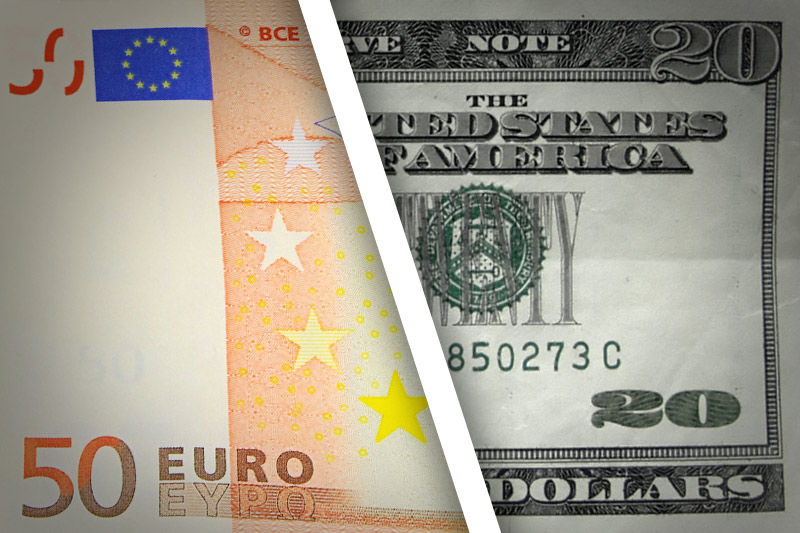Investing.com - The euro was trading close to session highs against the dollar on Tuesday after euro zone services data added to signs of a recovery in the region and offset concerns over political tensions in Spain and Italy.
EUR/USD hit 1.3568 during European afternoon trade, the session high; the pair subsequently consolidated at 1.3552, gaining 0.29%.
The pair was likely to find support at 1.3457, the session low and resistance at 1.3593, the high of January 31.
The euro hit session highs after a report showed that the Markit services purchasing managers’ index improved to a 10-month high of 48.6 in January from a final reading of 47.2 the previous month and above the preliminary reading of 48.3.
Commenting on the report, Chris Williamson, Chief Economist at Markit said the euro zone is showing “clear signs of healing, with the downturn easing sharply in January and the region moving closer to stabilization in the first quarter.”
The report showed that the gap between Germany and France widened, with Germany’s PMI posting the largest one-month increase since August 2009, while France’s PMI tumbled to an almost four-year low.
The data overshadowed concerns over political uncertainty in Spain and Italy which pushed peripheral borrowing costs higher on Monday and drove the single currency from 14-month highs against the dollar.
The euro briefly trimmed gains after a separate report showed that retail sales in the bloc dropped 0.8% in December, worse than expectations for a 0.5% fall, while November’s figure was revised lower.
Elsewhere, the euro was higher against the pound, with EUR/GBP rising 0.38% to 0.8605 and re-approached 33-month highs against the yen, with EUR/JPY rallying 1.44% to 126.60.
Sterling remained supported after data showed that the U.K. service’s sector expanded at the fastest pace in four months in January, easing concerns over the economy falling back into a recession.
Meanwhile, the yen remained broadly weaker amid expectations that Japanese Prime Minister Shinzo Abe would keep pressure on the Bank of Japan to step up easing measures to combat deflation.
The Institute of Supply Management was to publish a report on U.S. service sector activity later in the trading day.
EUR/USD hit 1.3568 during European afternoon trade, the session high; the pair subsequently consolidated at 1.3552, gaining 0.29%.
The pair was likely to find support at 1.3457, the session low and resistance at 1.3593, the high of January 31.
The euro hit session highs after a report showed that the Markit services purchasing managers’ index improved to a 10-month high of 48.6 in January from a final reading of 47.2 the previous month and above the preliminary reading of 48.3.
Commenting on the report, Chris Williamson, Chief Economist at Markit said the euro zone is showing “clear signs of healing, with the downturn easing sharply in January and the region moving closer to stabilization in the first quarter.”
The report showed that the gap between Germany and France widened, with Germany’s PMI posting the largest one-month increase since August 2009, while France’s PMI tumbled to an almost four-year low.
The data overshadowed concerns over political uncertainty in Spain and Italy which pushed peripheral borrowing costs higher on Monday and drove the single currency from 14-month highs against the dollar.
The euro briefly trimmed gains after a separate report showed that retail sales in the bloc dropped 0.8% in December, worse than expectations for a 0.5% fall, while November’s figure was revised lower.
Elsewhere, the euro was higher against the pound, with EUR/GBP rising 0.38% to 0.8605 and re-approached 33-month highs against the yen, with EUR/JPY rallying 1.44% to 126.60.
Sterling remained supported after data showed that the U.K. service’s sector expanded at the fastest pace in four months in January, easing concerns over the economy falling back into a recession.
Meanwhile, the yen remained broadly weaker amid expectations that Japanese Prime Minister Shinzo Abe would keep pressure on the Bank of Japan to step up easing measures to combat deflation.
The Institute of Supply Management was to publish a report on U.S. service sector activity later in the trading day.
